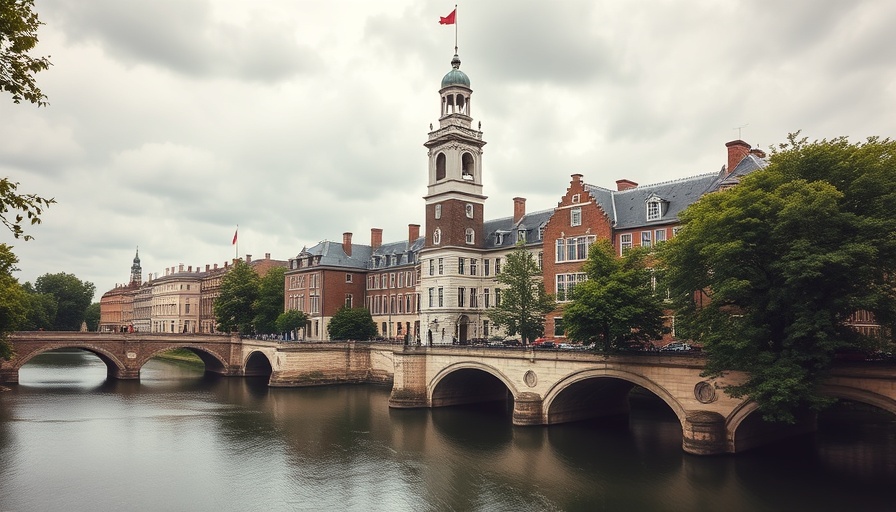
The Unexpected Shift in U.S. Foreign Policy
The recent welcoming of white South African farmers by the Trump administration demonstrates a surprising pivot in U.S. foreign policy priorities. Once, overpowering narratives shaped policy that primarily aimed at aiding refugees from war and famine around the globe. Now, as the Trump administration embraces Afrikaner immigrants, a once-marginalized voice is being amplified within the broader spectrum of U.S. diplomacy.
Understanding Afrikaners: Historical Context
Afrikaners, a white ethnic group in South Africa, are often seen as symbols of the apartheid regime, which enforced racial segregation and oppression against the majority Black population. Their history is marked by conflicts and privileges that starkly contrast with the systemic inequalities faced by various other groups in South Africa. Knowing this background can shape our understanding of why their current conditions evoke such attention from U.S. leadership.
The Political Landscape and Trump’s Migration Policies
President Trump’s affinity for white farmers of South Africa connects with his broader political narrative surrounding immigration and national identity. This reflects an administration less engaged with the diverse realities of refugee crises worldwide and more aligned with a populist agenda appealing to certain voter bases back home. Over the years, Trump’s administration has restructured U.S. asylum policies, leading to a significant shift in who is deemed deserving of refuge. This points toward a less inclusive stance overall, highlighting the emerging division in U.S. immigration policy.
Diverging Perspectives on Immigration and Refugees
The decision to prioritize white South Africans raises ethical questions about immigration processes perceived as biased. Many voices argue that the U.S. should uphold its historical commitment to sheltering a diverse array of refugees seeking safety, regardless of their race or nationality. Critics of Trump’s policies emphasize that such moves undermine the integrity of an immigration system designed to assist all individuals fleeing life-threatening conditions. These perspectives prompt deeper discussions about fairness and equality in politics.
Future Predictions: Shaping a New Dilemma
Looking ahead, the shift in asylum acceptance may spur both internal and external reactions. The welcoming of white Afrikaners could incite backlash from those who have long fought for a more equitable immigration system that prioritizes marginalized groups. As tensions rise in domestic political arenas, both proponents and opponents will need to navigate the complex realities of America’s evolving immigration landscape.
Impact on U.S. Relations with South Africa
This development can alter diplomatic relations between the U.S. and South Africa. While the move may resonate positively with certain demographics within the U.S., it could upset relations with the South African government and the broader community, particularly given the historical context surrounding apartheid and contemporary social dynamics. A complex relationship with multi-faceted implications requires ongoing monitoring and dialogue.
What This Means for You and Your Community
As citizens in the U.S. grapple with the implications of these policies, they must consider their own community’s values on immigration and the broader questions of refuge and asylum. Engaging in local discussions and grassroots efforts surrounding this topic may help shape future U.S. policies to reflect a more balanced approach to humanitarian concerns. Understanding and voicing these issues can empower individuals and foster informed community engagement.
Join the Conversation: What Are Your Thoughts?
As we reflect on the evolving narrative of U.S. immigration, it’s important for every citizen to engage with these pressing topics. The changes in asylum policies, especially the preference for specific ethnic groups, can stir emotions and opinions. What do you think about this shift, and how do you see it affecting the broader immigration discussions in America?
 Add Element
Add Element  Add Row
Add Row 



 Add Row
Add Row  Add
Add 


Write A Comment